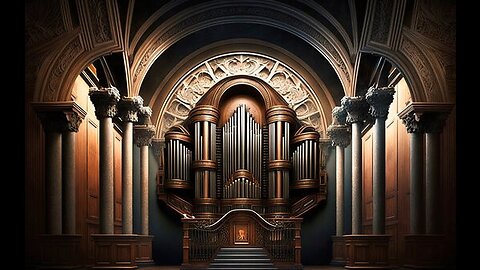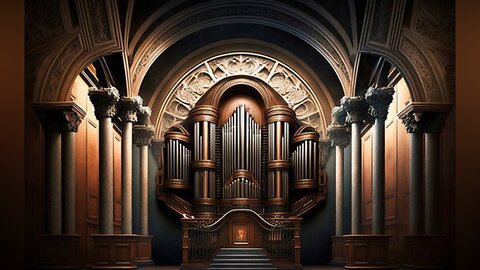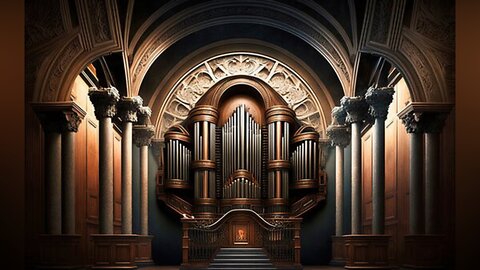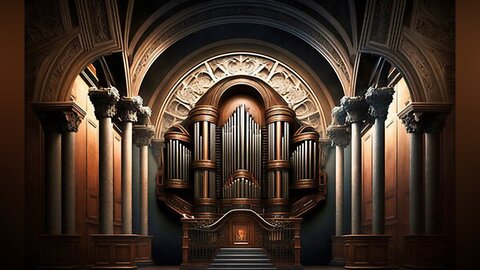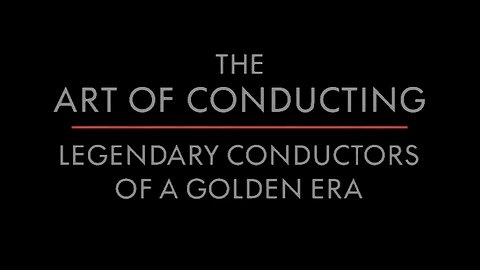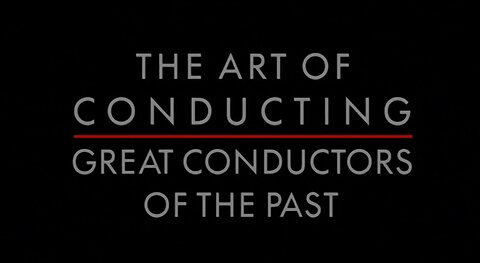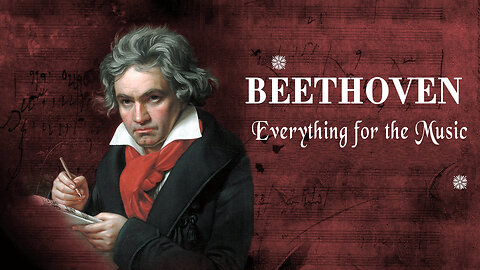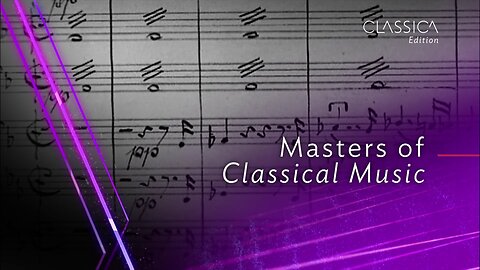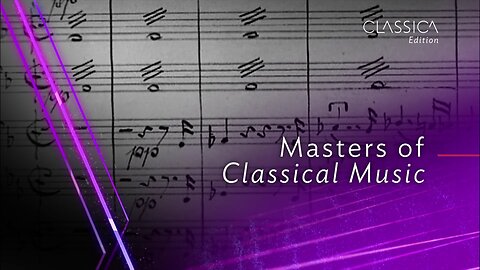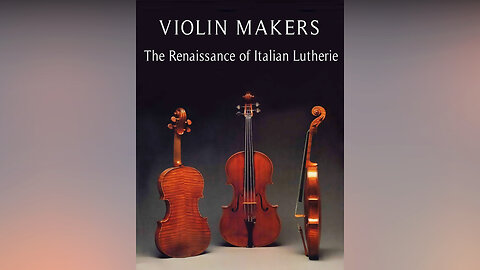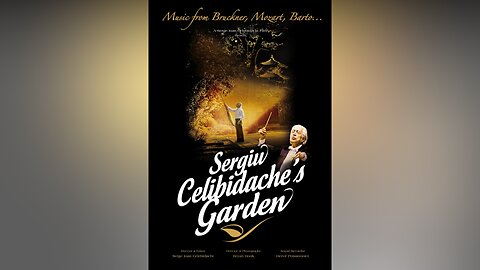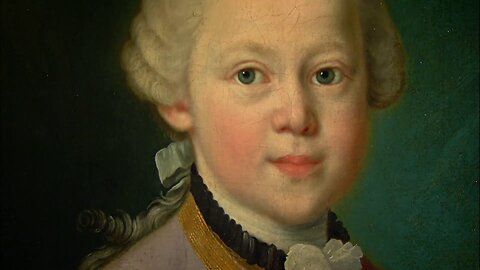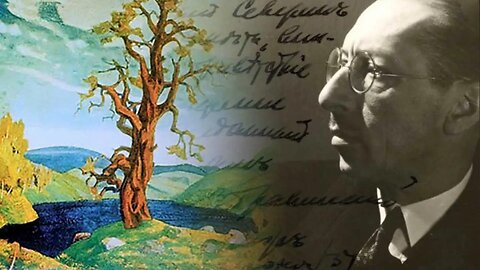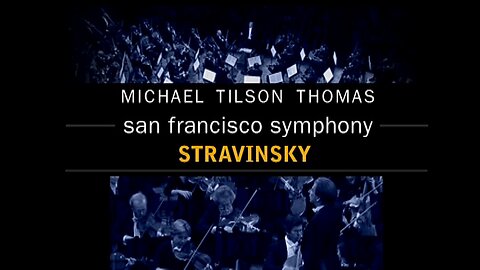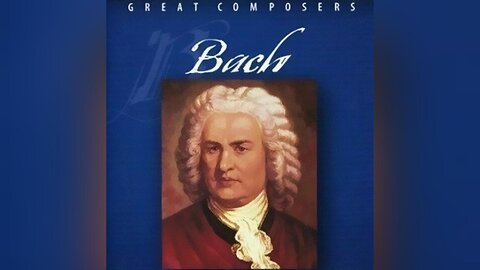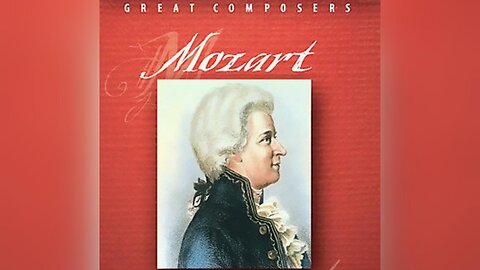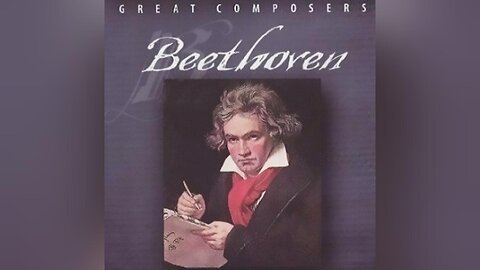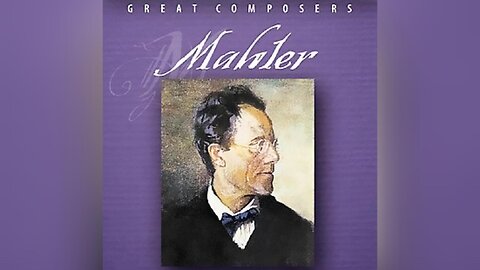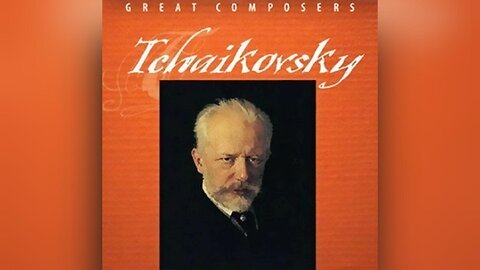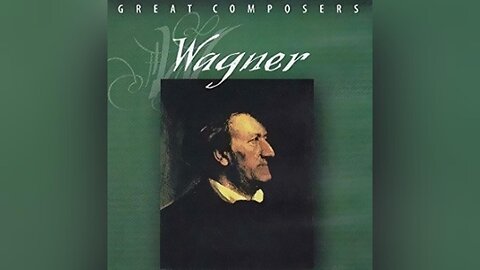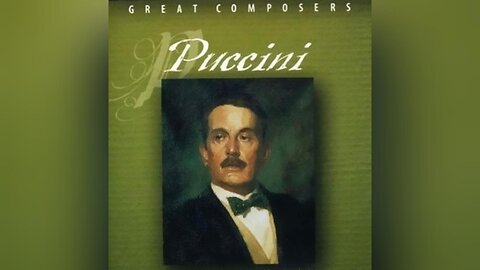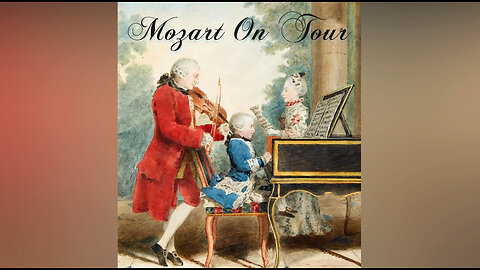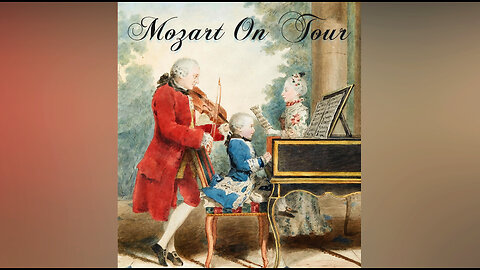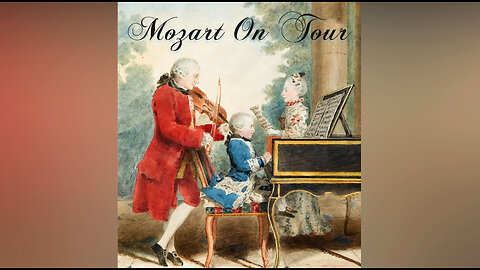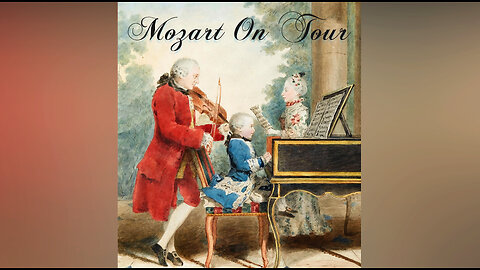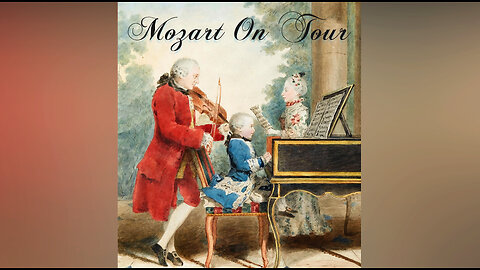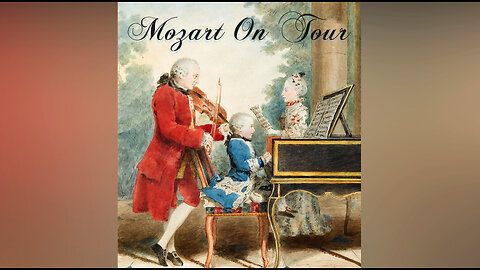Premium Only Content
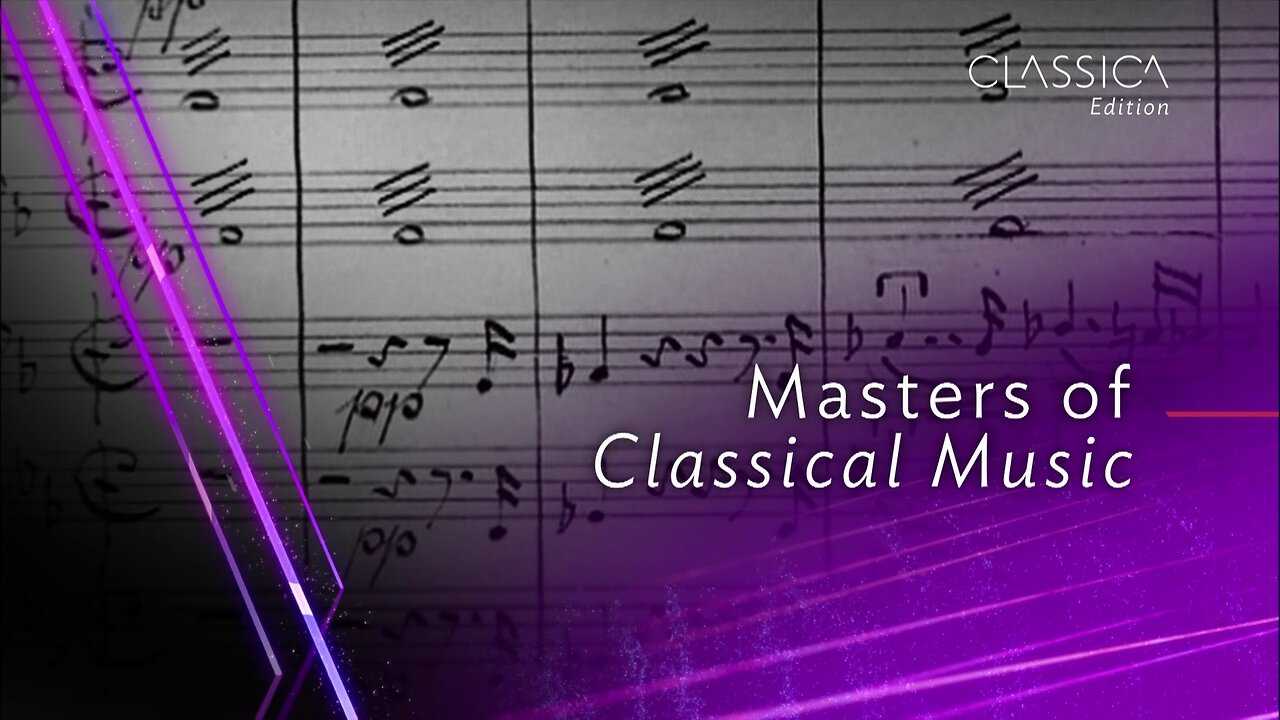
Orlando di Lasso: A Composer's Life in the Renaissance (MULTISUB)
A History of the Organ | Latin Origins (Episode 1)
A History of the Organ | From Sweelinck to Bach (Episode 2)
A History of the Organ | The Golden Age (Episode 3)
A History of the Organ | The Modern Age (Episode 4)
The Art of Conducting II: Legendary Conductors of the Golden Era
The Art of Conducting I: Great Conductors of the Past
Mozart - Liberty or Death!
Beethoven - Everything for the Music
God Rot Tunbridge Wells!
Masters of Classical Music | Discovering Bach’s Brandenburg Concertos (Episode 1)
Masters of Classical Music | Discovering Mozart's Symphony No.41 'Jupiter' (Episode 2)
Masters of Classical Music | Discovering Beethoven's Symphony No. 9 (Episode 3)
Masters of Classical Music | Discovering Haydn's Symphony No.94 'Surprise' (Episode 4)
Masters of Classical Music | Discovering Beethoven's Symphony No. 5 (Episode 5)
Rick Wakeman on Vivaldi's Four Seasons
Bolero: A Global Hit
Karajan - Or Beauty As I See It
Violin Makers - The Renaissance of Italian Lutherie
The Art of Violin
Sergiu Celibidache's Garden
Mozart 06 (Short Film 2006)
Keeping Score: Stravinsky's Rite of Spring
Keeping Score: Stravinsky in Concert
Great Composers: Bach (Episode 1)
Great Composers: Mozart (Episode 2)
Great Composers: Beethoven (Episode 3)
Great Composers: Mahler (Episode 4)
Great Composers: Tchaikovsky (Episode 5)
Great Composers: Wagner (Episode 6)
Great Composers: Puccini (Episode 7)
Mozart On Tour | London: The First Journey (Episode 1)
Mozart On Tour | Mantua: Initial Steps (Episode 2)
Mozart On Tour | Milan: Learning By Travelling (Episode 3)
Mozart on Tour | Mannheim: Aloysia and Constanze (Episode 4)
Mozart on Tour | Schwetzingen: Musicians and Princess (Episode 5)
Mozart On Tour | Paris: Far from Salzburg (Episode 6)
Mozart On Tour | Vienna: A Double Abduction (Episode 7)
Mozart On Tour | Vienna: The Best City for My Métier (Episode 8)
Mozart On Tour | Vienna and Prague: The Other Side of the Coin (Episode 9)
Mozart on Tour | Prague: Success with Da Ponte (Episode 10)
Mozart On Tour | Frankfurt: Coronation (Episode 11)
Mozart On Tour | Munich: Way Station (Episode 12)
Mozart On Tour | Vienna: The Last Year (Episode 13)
Masters of Classical Music | Discovering Beethoven's Symphony No. 5 (Episode 5)
Claudio Abbado at the Accademia Nazionale di Santa Cecilia, Rome (2001) with the Berlin Philharmonic, and hosted by Wulf Konold who analyzes the composer Ludwig van Beethoven's most famous works. Audio in English, with subtitles for the German parts.
The first four momentous notes of Ludwig van Beethoven's Fifth Symphony are perhaps the most instantly recognized in all of Western classical music. 'Thus Fate knocks at the door!' announced the composer- at least, according to the apocryphal story. Since then the symphony, from the dramutic opening bars to the blazing C major finale, has come to symbohize Beethoven at his most gloriously heroic. The influential critic and theorist A.B. Marx (1795-1866) even went so far as to proclaim that the work embodied 'the decisive fate of all mankind'. Yet the symphony itself is altogether more complex und enigmatic than such declarations suggest.
Following the premiere of the Fifth, Beethoven's reputation as a composer continued to flourish. Even the encroaching deafness that would, by 1814, become virtually absolute could not dampen his genius. In defiance of his hearing loss, he went on to produce such masterpieces as the choral Ninth Symphony, the Missa Solemnis and the late quartets - music of extraordinary beauty, grace und visceral power. He was soon firmly established as one of the most famous and revered musical figures of the age, and became almost an object of pilgrimage for aspiring young composers. The conversation books, which due to his deafness were his primary means of communication, record many of these encounters. In late 1826 Beethoven fell seriously ill, and, on 26 Murch of the following year, he died. Such was his renown that more than 20,000 people came to pay tribute to him at his funerul three days later, including Franz Schubert, who was one of the torchbearers.
-
 51:13
51:13
Adaneth - Arts & Literature
9 days agoLa Storia siamo Noi: Maria Callas (ENG SUB)
79 -
 LIVE
LIVE
Drew Hernandez
15 hours agoCANDACE OWENS CALLS CHARLIE KIRK STAFF INTO QUESTION?
953 watching -
 47:03
47:03
Barry Cunningham
8 hours agoPRESIDENT TRUMP MEETS WITH THE PRIME MINISTER OF JAPAN!! AND MORE NEWS!
46.6K29 -
 1:18:29
1:18:29
Flyover Conservatives
1 day agoThe Dollar Devaluation Playbook: Gold, Bitcoin… and the “Genius Act” - Andy Schectman | FOC Show
37.8K3 -
 7:10:35
7:10:35
SpartakusLIVE
8 hours agoWZ Tonight || Battlefield 6 BATTLE ROYALE Tomorrow!
39.8K -
 3:25:11
3:25:11
megimu32
5 hours agoON THE SUBJECT: Halloween Nostalgia! LET’S GET SPOOKY! 👻
31.5K1 -
 1:24:56
1:24:56
Glenn Greenwald
7 hours agoThe Unhinged Reactions to Zohran's Rise; Dems Struggle to Find a Personality; DHS, on Laura Loomer's Orders, Arrests UK Journalist and Israel Critic | SYSTEM UPDATE #538
122K90 -
 4:36:02
4:36:02
Spartan
7 hours agoBack from worlds. Need a short break from Halo, so single player games for now
24.1K -
 LIVE
LIVE
Eternal_Spartan
14 hours ago🟢 Eternal Spartan Plays FF7 Rebirth Episode 15 | USMC Veteran
71 watching -
 1:32:11
1:32:11
Tundra Tactical
6 hours ago $1.78 earnedProfessional Gun Nerd Plays Battlefield 6
19K

